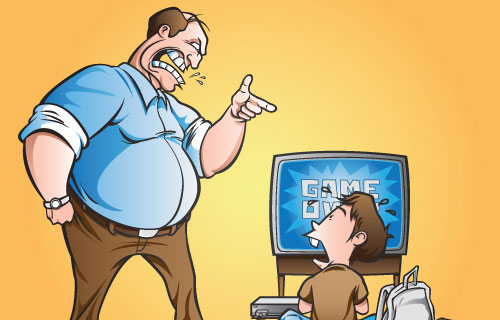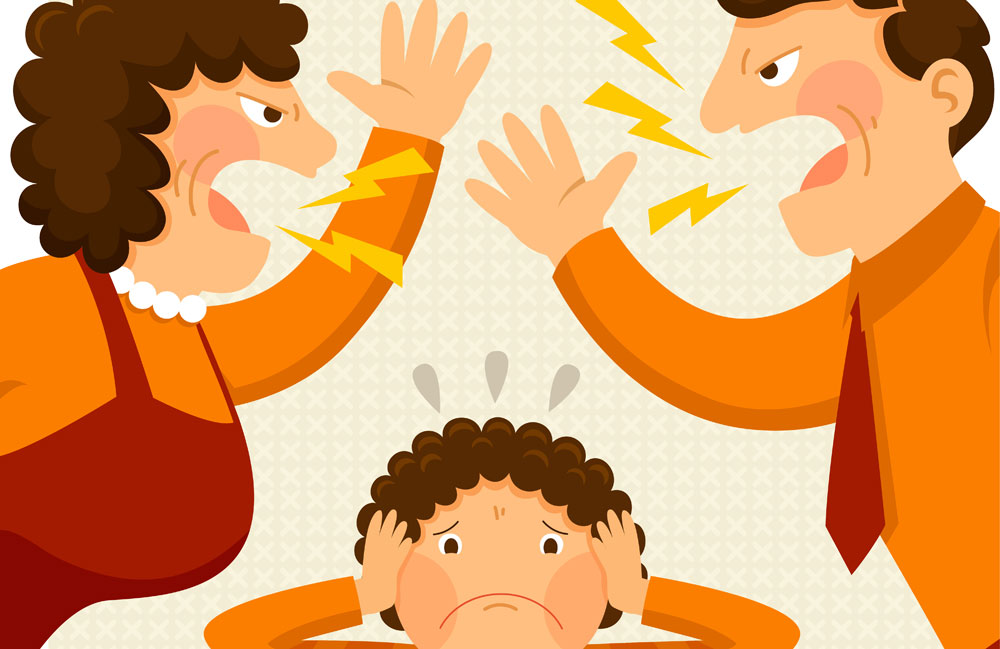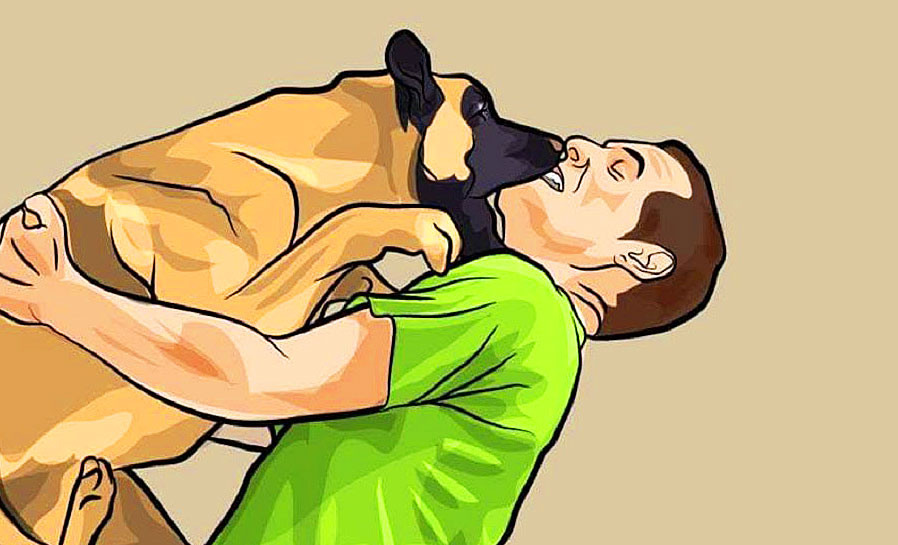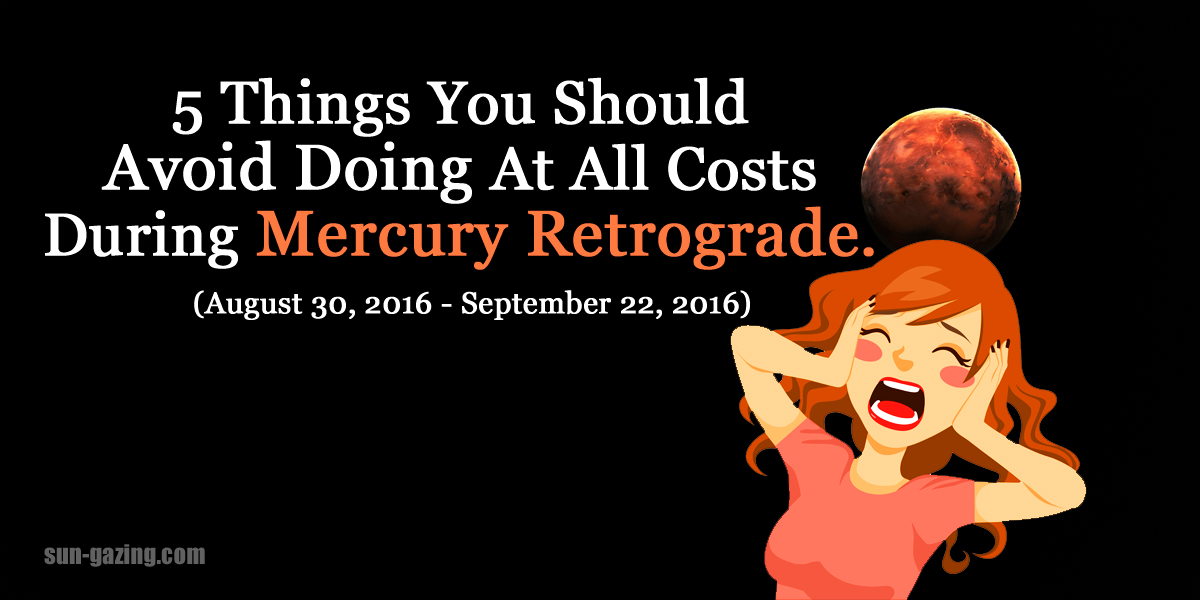Make a Fist, Look Down and See Which Type You Are. It Can Determine A Lot About Your Personality.

Throughout time and history people have sought to make sense of the surrounding world and everything in it. There’s still so much we don’t know about the planet, just think about the pyramids and all of the new forms of life that are still being discovered to this day. However, one of the biggest mysteries that humans have tried to unlock isn’t part of the physical or tangible world at all, rather it’s a mental construct that we all exhibit. I’m talking about personality, which is all of the different personal characteristics and types of qualities that make us who we are as individuals!
Scientists, psychologists, and other researchers have made many attempts at figuring out personality types. One major area happens to involve an individual’s personality being linked to certain physical parts of the human body. For example, there are theories as to what your finger or toe length may reveal about who you are and many more similar types of notions. In particular, it seems that the one physical attribute which stands out above all the others is our own two hands.
The hands are believed to hold the most information about our lives. It follows that many people think that hands can reveal all sorts of subtle clues in regards to a number of human traits and behaviors, including things like the way we act and make choices. A very simple and basic way in which these beliefs play out can be seen in how we often compare left-handed to right-handed people. Someone who is left hand dominant is more likely to be a better artist, whereas right hand dominant people are harder to scare or anger than their lefty counterparts.
In a similar alternative, the way in which an individual makes a fist with their hand can indicate things about their character traits and overall personality type. All you need to do is make a fist and then closely examine how you curl up your hand. Pay special attention to where you place your fingers and then compare the fist that you make with the three distinct types shown in the accompanying illustration.
Go ahead and make a fist, now see if you are type A, B, or C. The results for each fist represent a personality type and once you choose the one you are you can read about what it means. Included is a breakdown of the special qualities, traits, and attributes which are associated with both your internal and external personality. Also, your love personality is provided as well so be sure to check it out if you’d like to see how you’re likely to act in a relationship and what you tend to look for in a partner!
This is super easy and all that you really have to do is make a fist, then compare it against the choices to see what your hand reveals about your personality. Pass it on and enjoy!
Please SHARE This With Your Family and Friends
Does Your Cat Do The Head Bump All The Time? THIS Is The Strange and Surprising Reason Why.

image via – youtube.com
Cats have held important roles all throughout history and practically everyone knows how the ancient Egyptians worshiped them as sacred. Fewer people are aware of the fact that up until several hundred years ago there were no cats at all in North America.
It wasn’t until they were brought over from Europe to help manage with pest control that they were first introduced to this side of the Atlantic. In that short span of time felines have managed to win over our hearts and in the process, our homes.
Today they are the number one most popular pet animal with an estimated 88 million of them in the US alone. A 2014 Carroll University study found that 11.5% of people identify themselves as cat people yet 30.4% of US households own a cat.
The study found all sorts of interesting things about cat owners, they’re 11% more likely to be introverted and 17% more likely to have a graduate degree, but it failed to shed light on more pressing cat issues….like why they do the things they do!
If you’ve ever wondered why your cat does certain things, here are the top most common cat behaviors decoded and explained in human terminology. The accompanying video goes over them as well in greater detail, be sure to check it out so that when your cat displays them, you’ll know what kitty is saying or conveying:
Headbutting- Your cat is saying hello and likes you! When they bump their head against you it’s also called ‘bunting’ which is a friendly gesture and a common manner in which cats greet people. They do it when they feel safe and as a way to rub their scent glands on you, which is a compliment so be thankful. Don’t get too excited though because they also love to do it to the couch! 🙂
Randomly sprinting to and fro- Your cat is trying to get in some exercise. Unlike dogs who get to go on long walks, domestic cats lack that luxury and basically have to walk themselves. They do that by bursting into a sudden ball of energy and running full speed across the house. Like most of the things cats do, they do it seemingly randomly whenever and wherever they want, but mostly when they’re feeling restless.
Spreading their legs- Your cat trusts you. An open legged position means that a cat is comfortable enough around you to fully submit and recognize that you’re in charge. Splaying their legs is a felines way of showing you vulnerability in the most vulnerable way they possibly can.
Sticking their behind in your face- Your cat wants to get to know you. When they back their rears up to your face it may seem offensive to you, butt it’s anything butt that! It’s actually kitty saying ‘hey what’s up’ to you because cats communicate mainly via scent and it turns out that butt sniffing is their main way of greeting one another.
Shake their booty before pouncing- Your cat is balancing itself. The booty quaking is adorable, funny, and a major part of why we love cats so much, but it’s actually part of a larger movement they’re doing to help balance themselves. To find equal footing a cat wiggles and part of that motion involves the entire leg and foot, which is what we end up seeing.
Kneading you like dough- Your cat is thinking back to their baby kitten days when they fed from their mother. This instinct is very strong in cats and while it’s original purpose, to get more milk from their mother’s breast, is no longer warranted, they do it anyways. Often it’s a sign of comfort and relaxation and
Laying on your stuff- Your cat wants attention. When you stare at your laptop all day long, your cat notices and when they want your attention they will sit right on it, front and center. Kitty’s don’t always need their human’s attention but when they feel the urge they always get what they want. It’s a simple as that.
Ignoring food in front of them, then eating random stuff- Your cat isn’t hungry or can’t see the food. Cats are grazers and will eat whenever they’re hungry. If you give them food at a time when they are not yet hungry, they won’t eat it. Also, they can’t see anything directly in front of their face because they’re near sighted. Anything within a foot is out of focus.
Burying their poops- Your cat is protecting itself. In an evolutionary, instinctual sense, a cat burying its number two is done to avoid other predators from getting a whiff of it and becoming alerted to their presence. In multi-cat households, they also cover it up to avoid offending other more dominant cats. However, when they fail to bury their doo-doo it can mean they’re possibly angry at you or offended by something you did.
Sleeping a lot- Your cat is normal. On average cats live 12-15 years and spend 70% of their lives asleep. Kittens need more sleep than adult cats because that’s how they get big and strong, when they’re asleep their bodies release growth hormones.
Please Share This With Family and Friends 🙂
6 Things You Can Do To Deal With Family Members Who Are Very Toxic.

Toxic people are best to be left alone and avoided. Sometimes that’s hard to do as it may be the case that you either work with someone or have family members who are toxic. They are the type of individuals who make life difficult and have a stressful, draining, and overall negative effect on us. Whether they are hyper-critical, jealous, overbearing, needy, manipulative, or full of unnecessary drama, their behavior makes us feel bad and can end up wreaking havoc on our emotional and mental well-being.

Thankfully there are some things that you can do and keep in mind to help with having to deal with a toxic family member. If you cannot escape or distance yourself far enough from them, then the following information will at the very least alleviate the situation.

1. Don’t take anyone’s toxic behavior to heart. Oftentimes toxic people, especially family members, will try to place the blame on you for something in an attempt to justify their behavior or get what they want. When you take it personally and end up feeling guilty, then you’ve fallen into their trap. If they get away with it once, they’ll likely keep doing it over and over, so put a halt to it. Instead of taking things personally remind yourself that it’s not you, it’s them, and let go of any guilt or blame and stand up for yourself.

2. Let them know that their toxic behavior is unacceptable. Many people make the mistake of ignoring a family member’s toxic behavior or they act like nothing is wrong when that’s clearly not the case. We often do this to avoid confrontations and it’s easier to give into a toxic person than to fight them on things. Pretending everything is OK might make you think it will stop their behavior but it only increases and makes it worse in the long run. They’ll see it as a sign that what they’re doing is right or you’re okay with it, they may even view your pretend ignorance as a weakness and try to further exploit it. Put your foot down and stop giving in to their emotional manipulation, you’re basically rewarding them every time you do so. Call them out and tell them their behavior is not OK.

3. They probably are not truly bad people, remember they’re just bad for us. Many toxic family members mean well and really do care, it’s just that they have a way of going through life that forces us to accommodate them. We settle for less in order to put their wants, needs and desires first, and in doing so we end up compromising our own happiness. Know that they do care, but keep a safe distance from them, and make yourself and your happiness a priority.

4. Be the bigger person and forgive them. It’s easy to hate a toxic person for all the negativity and stress they create, but hating only leads to more of the same. Put the drama aside and let it rest by forgiving them and moving on. It’s the best thing you can do for both yourself and your family, so open your mind and heart to forgiveness.

5. Take time to focus on yourself. Family members are the most overbearing and emotionally draining type of toxic people to be around. They get in our heads and make us question our motives, feelings, reactions, and just about everything else that involves dealing with them. Don’t let yourself get too hung up on the situation or it’ll quickly burn you out. Instead, focus on yourself and take time out to rest and get away from it all. Stay positive, take care of yourself, and don’t give up!

6. Let go of them. When you’ve tried seemingly everything and still cannot free yourself from serious emotional turmoil and stress caused by a toxic family member, sometimes the best thing to do is walk away. All you can do is try to make the best of it and if that doesn’t work then you may need to go your own way. In the end, you know what’s best for you and no one should ever keep you from reaching it. Do you have a toxic family member? let us know in the comments

Please SHARE This With Family and Friends
THIS Is The Actual and Unexpected Reason Why Dogs Jump On You When You Get Back To Your House!

image via – youtube.com
For anyone who has ever had a dog it isn’t huge news to find out that dogs feel actual love for their owners. However, because they’re unable to speak, they have to find other ways to communicate their love. Even dog lovers might be surprised by the hidden meanings behind the things that your dogs do on a regular basis.
Sleeping on their side – It seems that when dogs sleep on their sides, they’re actually trying to tell their owner how they feel about them. By doing this, dogs are telling you that they love and trust you.
Sleeping on their stomach – When dogs sleep on their stomachs, its often because they are shy or gentle dogs. When sleeping in this way, dogs are unable to sleep deeply and cannot reach REM sleep in this position.
Sleeping on their back – When a dog sleeps or lies on its back, it is often because they are hot and are trying to cool off. If the dog’s arms are crossed, it means they want to be left alone so he can sleep.
Staring – If a dog is staring at you, it simply means that he wants your attention and love. So go out and play already!
Staring with their tongue out – While staring certainly identifies a desire for attention in a dog, a tongue out also can show you what mood they are in. Usually, when a dog stares with his tongue out, it means that he is relaxed and generally content at that moment.
Intense eye contact – When a dog stares intensely at you, it actually means something different than a normal stare. This kind of scrutiny signifies that the dog is trying to read your expression as to better understand what you want from the animal.
When Your Dog Jumps On You After You Arrive At Your House – This is because he missed you so much that if it means knocking you over and giving you a hug while licking you on the floor; so be it! This is the ultimate show of love any canine will ever show for their human.
Stance with open mouth, relaxed tail, and high ears – When a dog carries this stance, it means that the animal is relaxed and secure in its surroundings. If you want to approach a dog you don’t know, look for this stance.
Stance with a pointed tail and forward-facing ears – When a dog maintains this posture, it means that the animal is curious about something. They probably hear or smell something that interests them.
Loose floppy tongue – When a dog has its mouth open with its tongue hanging out, it simply means that your dog is extremely happy. Keep up the good work!
Soft increasing bark – If a dog starts barking at you and steadily continues louder, it means that he wants to play with you. So what are you waiting for?!?
Everyone knows that dogs are full of love. What most don’t know is that many regular actions that dogs take can actually tell you things about the dog. Through their actions, dogs communicate mood, wants, and even love. Here are some of the ways they tell you that something is bothering them.
Howling – Dogs have exceptional hearing, often much better than humans. As a result, they can hear things that we can’t. This includes high pitched noises. Dogs usually howl when they hear these noises either because they’re irritated by the noises or because the noises are actually hurting the dog’s ears.
Baring teeth, ears back, and snarling – This one is pretty obvious. If a dog is exhibiting this kind of aggressive behavior, it means that it is aggravated and on edge. Make sure to always be careful when approaching dogs in an angry state as they could pose a physical threat. If your own dog is like this, try to calm them down by giving them a treat, bone, or toy they like. Hopefully, this will relax your pup.
Low growl – This just means that your pup is anxious or scared. Logically, if there is something that is clearly scaring the canine, separate the two. If you’re not sure what could be causing it, employ the same tactics as when your dog is angry. Note what antagonizes your dog so you can avoid negative interactions in the future.
Watch the video below for a more in depth look at all these dog behaviors:
Please SHARE This With Family and Friends
These 4 Destructive Behaviors Will Ruin Your Relationship

image via – youtube.com
People get married with every intention of staying so; they are “in love” and often push away early signs of conflict in the relationship before marriage, because of the “halo” of being in love. You may hear couples report that ‘everything changed once we got married’. This, in fact, is probably not true; the precursor for destructive patterns usually exist before getting married, but are ignored in the name of love.
All relationships have conflict, because two separate people can’t always get along. It is not the conflicts themselves that predict whether relationships will survive, according to Dr. John Gottman, rather it is how couples “manage” these conflicts.
He uses the word “manage” rather than “resolve”, because his research has shown that relationship conflict is normal and management can be a bright spot in the health and future of a marriage.
He has identified what he calls “The Four Horsemen of the Apocalypse” of a relationship. They are highlighted in the video you are about to watch below, as well as the antidotes for these relationship killers. These are four destructive patterns of communication which denigrate your partner, and over time will destroy the relationship, if not corrected.
His studies have allowed him to predict with 90% accuracy whether a marriage will end in divorce, by assessing whether these “Four Horsemen” behaviors dominate a relationship. The first of the “Four Horsemen” is CRITICISM, which attacks the character of your partner rather than communicating a complaint about his/her behavior that troubles you.
Criticisms are characterized by statements such as “you always” and “you never”. The ANTIDOTE for CRITICISM is to change the accusatory modality into “I” statements, such as: “I’m feeling sad about what we talked about before. Can we please talk about it again?” Making the “I” statement allows for the possibility of managing the problem rather than further escalating it into an attack that says, in essence, ‘if YOU didn’t do this than I would be happy’.
Criticism, or accusation, yields the second of the “Four Horsemen”, which is DEFENSIVENESS. If one’s character is attacked, the natural human reaction is to ward off the hurt by protecting oneself. It often results in statements such as: “How dare you talk to me like that” or “I did nothing wrong, it’s you who has a problem!” Getting defensive when your character has been criticized is a normal human reaction.
When attacked we go into a “flight or fight” mode to get away from the emotional danger we are experiencing. If you can “stay still” enough after being criticized and act out of your adult self (as opposed to a scared child) there is hope for managing the conflict.
Therefore, the ANTIDOTE for DEFENSIVENESS is to ACCEPT RESPONSIBILITY for a part of the conflict. After all, the saying “it takes two to tango”, didn’t come from nowhere. If there is a conflict between two people who love each other, the chances are good that each person has a part in it.
So instead of responding to the corrosiveness of criticism with “you’re the one who is always late…”, try a version of: “maybe I do start getting ready too late…I’ll try to…”. Taking responsibility for your part in a conflict can help to avoid the most corrosive of the “Four Horsemen”, CONTEMPT.
You may have heard that using sarcasm, (as clever as it may sound), is a relationship killer. Contempt is born out of criticism and defensiveness; it is a person’s attempt to falsely elevate oneself as being superior to the other by using hostile humor, cynicism, name-calling, eyerolling and mockery.
These behaviors are the most dangerous of the “horsemen”, as it displays a complete disregard of your partner; in and of itself, contempt is the greatest predictor of divorce. The ANTIDOTE for CONTEMPT is building a relationship that honors the other, by showing respect and appreciation for the best of what your partner brings to the table.
If this “culture of respect” has been nurtured throughout the conflicts that arise, chances are you and your partner will not have to experience the “relationship killer”, of contempt. If things have gone too far and your conflicts have turned into battles, the final one of the four “horsemen” will be the last straw, STONEWALLING.
This will occur when one person just cuts off, stops listening and withdraws. The ANTIDOTE for STONEWALLING is “physiological self-soothing”. Gottman says that removing oneself from the situation before exploding or imploding (stonewalling) is letting your partner know that you are on overload and need a break.
This allows both of you to have the adrenaline from fighting subside, let your body return to a state of relaxation for at least 20 minutes, before coming back to each other in an attempt to manage your conflict without continuing to resort to the “Four Horsemen”.
Neither pretending that conflicts don’t exist, nor beating one’s partner into emotional submission will result in a friendship that is key to a healthy relationship. Learning to implement the antidotes to these “Four Horsemen of the Apocalypse” is well-summarized in the video you are about to watch.
Please SHARE these important relationship tools with your friends and family
5 Things You Should Avoid Completely During Mercury Retrograde From August 30 – September 22, 2016
Brace yourselves because Mercury is about to go retrograde for the third time again this year! It all starts on August 30th and will last through September 22. During that time period we can expect disruptions in the main areas that Mercury controls, which includes travel, communications, and learning. But first, here’s a little clarity on what it all means when someone says something along the lines of Mercury being retrograde.
Chances are you’ve heard it countless times before but when someone mentions that “[planetary body X] is in retrograde” do you know what it actually means? The answer is quite simple, it means that the planet will appear to move backwards in its orbit through the sky!
In the most basic terms retrograde is defined as “directed or moving backward,” in the Online Oxford Dictionary. Astronomy and astrology use the word to encompass how all the planets appear to be moving around the sun as compared and relative to the Earth. As such, a planet which is said to be in retrograde will appear to be moving backwards, as if it’s going in the wrong direction, even though it’s not. A point of comparison is that we’re used to planets and their satellites moving in direct, aka prograde, motion from west to east. That type of path through the sky appears normal, it’s what’s expected, and so we don’t bug out nearly as much when Mercury is prograde.
So why does Mercury being in retrograde have such an effect on people? According to astrologers Mercury controls our travel and movement, our ability to think rationally and clearly, veracity and the truth. When it enters a retrograde period and appears to go backwards, all of the things it controls also seem to go in reverse. It’s from this inverse movement that the things in our lives related to truth, travel, and comprehensive thinking get all disrupted and turned upside down. To lessen the effects of this upcoming Mercury retrograde, here are some things that you’d be wise to hold off on or avoid doing all together if possible:
1. Don’t buy big ticket, expensive items!
Oftentimes issues arise with the pricey goods and gadgets that consumers end up purchasing during retrograde periods. Perhaps the bargain is too good to pass up, and it later turns out that’s because the item is broken or defective in some way. It’s best to hold off until later to spend your money and a good rule of thumb to follow is don’t buy unless you absolutely must. For those unavoidable purchases make sure you get something from a reputable seller that is either guaranteed, insured, registered, under warranty, or whatnot. Save the receipt, packaging, and paperwork as well in case you do in fact end up needing it!
2. Don’t ignore your finances!
No one enjoys going over bills and loans but if you’ve been putting off checking your accounts and all that good stuff lately, then do it now. During Mercury retrograde our minds and brains tend to be more willing and able to go over and examine any financial information that needs reviewing. Whether you need to refinance or pay off a loan, plan a budget, balance your checkbook, it will all be easier to get done when Mercury is in retrograde.
3. Don’t switch careers or begin a new job!
While landing a new job is exciting and opportunity is hard to pass by, you may be better off pushing it back or declining it all together. Mercury retrograde has a peculiar way of messing things up. Even the most routine, expected, seemingly fair things get turned upside down and this is especially true in the realm of employment. Maybe your new boss will turn out to be unbearable, you won’t get the benefits or pay expected, the work load will break you, the company will fold a couple of months later, there’s lots that could go wrong so try to avoid starting a new job at this time and wait for Mercury to be prograde again!
4. Don’t travel!
As if traveling isn’t already a huge pain in the neck, during Mercury retrograde it’s ten times worse. There’s often a noticeable uptick in the amount of delays, cancellations, lost bags, reservation mix-ups, and missed flights or connections. Whether you plan on traveling by plane, car, train, or bus, expect service interruptions of any and all kinds. Mercury has a strong connection with travel so when it goes backwards it sends even the best laid travel plans haywire. If you absolutely must travel, you’d be wise to have your itineraries and alternative plans in order. Get travelers insurance if possible and triple check all the times, details, and reservations you’ve made.
5. Don’t sign a contract or close on a sale!
During Mercury retrograde the way people think and comprehend things becomes altered. They may be all for signing on the dotted line when it comes time to close, but soon afterwards they will be questioning their decision and re-thinking all the options. They may try to get out of it all together or breach their duty and leave you taking a big hit. In case there is no way around entering into a contract, be extra careful no matter who you may be dealing with. Make sure you fully understand and double check all the fine print, know all the terms, conditions, exceptions, and every possible detail of what you’re about to sign and agree to. In the end, a signed writing is the one key piece of evidence that can make or break a contract, and make it fully enforceable against you down the line.
On a final note, after September 22nd Mercury won’t be in retrograde anymore until December 19th so until then good luck!
Please SHARE This With Family and Friends





